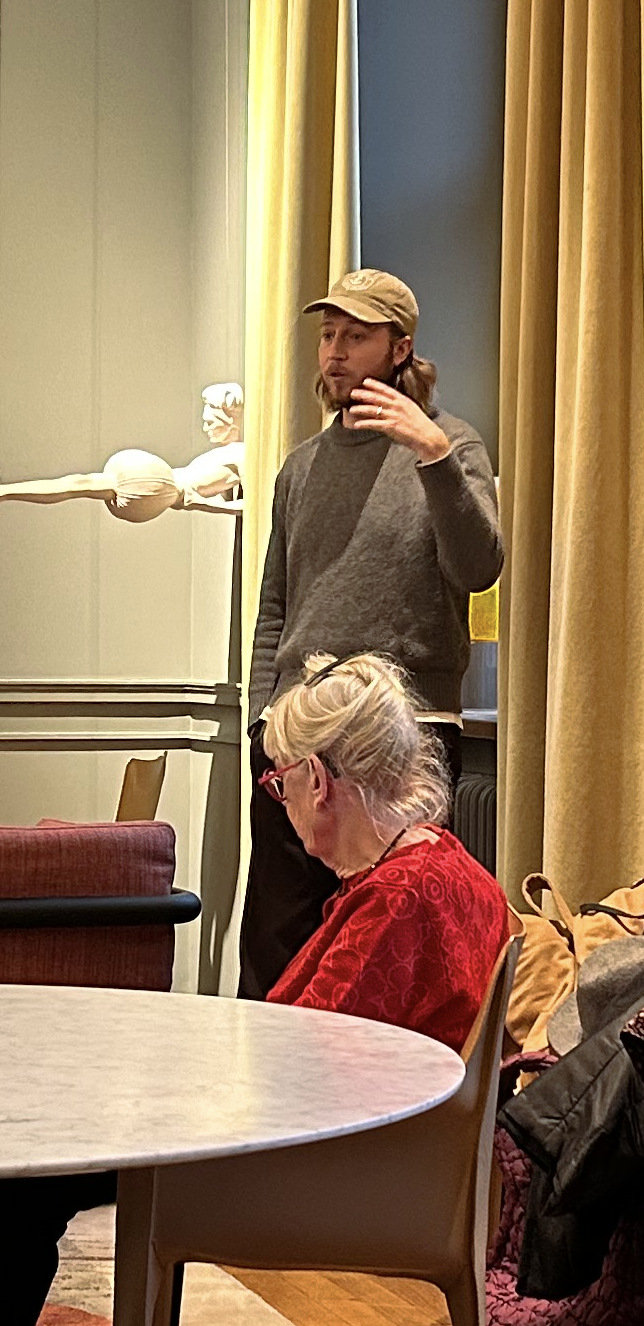Writing Life – On gazes, voices and subjects
The SSE Literary Agenda and Center for Philosophies of Markets hosted a symposium on different modes of life writing. Associate Professor Alexandra Borg from The Department of Scandinavian Languages at Uppsala University, was especially invited to moderate a discussion on the nature of this type of literature. She was joined by a distinguished panel of authors who have used methods of biography and autobiography and related to their contexts as genres in their work.
They discussed questions of both how one might approach and write another person's life story, and what the moral implications of attempting this are? What kind of emotional bond might develop between an author and a subject, perhaps without ever having met them? Some authors argued that developing such a bond is in fact a requisite in order to write a good biography or interview. Not that one must sympathize with their decisions, but that one must feel acquainted, get beyond the superficial and official.
Another challenging issue in trying to write someone else's story is that our interpretations and expressions of the truth varies. We emphasize differently, and so our success in representation is not only up to ourselves. Axel Burénius shared an anecdote of the reactions from two different interviewees for the same book. He had approached both of their stories in a like manner, and whilst one of them lauded him for his ability to capture the essence of what she had experienced, the other felt entirely misrepresented and taken advantage of. Elin Cullhed added that having one's own story told in the vocabulary of someone else can be an uncanny experience. And if this turns into a feeling of not even owning the rights to one's story, surely, few things can be as devastating? Whether we are striving for factual or artistic truth, the dignity of the person remains part of the equation. For the living, words can have very tangible consequences, and the dead are not around to defend themselves.
Alexandra Borg mentioned that the biography as a genre has grown increasingly multifarious and diffuse. Different kinds of writing make use of the I as a source of experience, of structure. But genres have always been points of contention and seen change over time. Taking the step into the territory of academic writing, the explicit use of "I" can be a matter of especial taboo in such circles, striving for dispassionate and transparent analysis. But that genre too is a labor in creativity and convetntion, and has developed over time. For example, during the 18th century, dissertations at Uppsala University opened with praise to one's supervisor, written in verse!
Mattias Hjelm, affiliated researcher at the Center for Philosophies of Markets, did not open his dissertation with such an ode, in his investigation into cynicism in consumer culture. He did enact in another formal experiment though; in attempting not only to accurately capture and describe the phenomenon but to relay its experience, he felt increasingly frustrated that there seemed to be a recurrent retreat to the status quo of consumerism by another name, inherent in the form of the academic disseration itself. To find another way forward, he drew on various art forms such as absurd theatre, cubist painting and metamodern poetry to express his findings.
What is the academic prose of tomorrow? And how might researchers learn from conventions and methods in artistic genres and from those writing it? By hosting this symposium, the Center for Philosophies of Markets has started this conversation, which will doubtlessly continue to intrigue and engage both writers and readers, giving shape and voice to the thoughts of the future.
By: Staffan Alsparr



